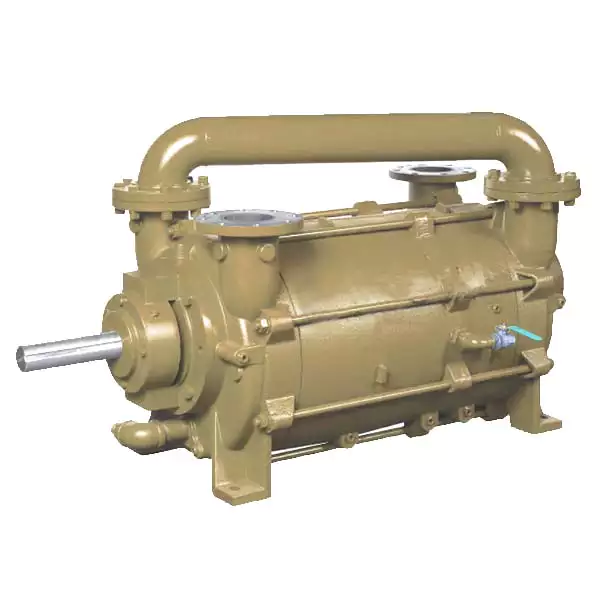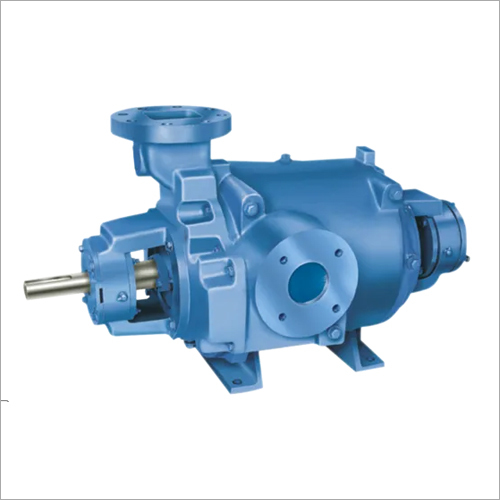产品说明
产品说明
2BE liquid ring vacuum pump is CHINAMFG liquid ring vacuum pump and is used to transport gases and vapors, predominantly for intake pressures below atmospheric pressure. Our 2BE liquid ring vacuum pump is available in 20 models, and is ATEX Certified. It offered It offered Suction capacity from 150 to 38000m³/h. It has reliable operation and economic power consumption. We also have 2BE pump with Partition wall in pump casing special for paper industry.
We offer same outline dimensions for bolt-on replacement and equivalent performances with original 2BV liquid ring vacuum pump.
|
ITEM |
UNIT |
Quantity |
|
Supply Ability |
per month |
2,000set |
2BE series water ring vacuum pumps and compressors are the products with high efficiency and economical power, which are manufactured by our company integrating with the advanced technology of the imported products from Germany. These series products adopt CHINAMFG and single action structure and have many advantages, such as, compact structure, convenient maintenance, reliable running, high efficiency and economical power. Comparing with the SK, 2SK, SZ series water ring vacuum pumps used widely in our country at present, the 2BE series products are the ideal replacements of them for high vacuum, low power, and running reliability
Product Series
公司简介
Certifications
Packaging & Shipping
/* 2571 年 1 月 22 日 19:08:37 */!function(){function s(e,r){var a,o={};try{e&&e.split(",").forEach(function(e,t){e&&(a=e.match(/(.*?):(.*)$/))&&1
| 售后服务: | Online Service |
|---|---|
| 保修: | 1 年 |
| Oil or Not: | Oil |
| 结构 | 旋转真空泵 |
| Exhauster Method: | Entrapment Vacuum Pump |
| 真空度 | High Vacuum |
| 样本 |
US$ 10000/Piece
1 件(最小订单量) | |
|---|
| 定制: |
可用
|
|
|---|

如何维护真空泵并排除故障?
真空泵的维护和故障排除对于确保其最佳性能和使用寿命至关重要。以下是详细说明:
真空泵的维护:
1.定期检查:定期对泵进行目视检查,检查是否有任何损坏、泄漏或异常磨损的迹象。检查电机、皮带、联轴器和其他组件是否正确对齐和处于正常状态。
2.润滑:遵循制造商的润滑指南。某些真空泵需要定期换油或润滑活动部件。确保使用正确类型和数量的润滑油。
3.油位检查:监控油封泵的油位,并将其保持在建议范围内。必要时按照制造商的说明添加或更换机油。
4.过滤器维护:定期清洁或更换过滤器,以防止堵塞并确保气流正常。过滤器堵塞会影响泵的性能并增加能耗。
5.冷却系统:如果真空泵有冷却系统,则应定期检查其清洁度和功能是否正常。根据需要清洁或更换冷却部件,以防止过热。
6.密封件和垫圈:检查密封件和垫圈是否有磨损或泄漏迹象。及时更换任何损坏或磨损的密封件,以保持气密性。
7.阀门维护:如果真空泵包括阀门,请定期检查和清洁,以确保正常运行并防止堵塞。
8.振动和噪音:监测泵是否有过度振动或异常噪音,这可能表明存在偏差、轴承磨损或其他机械问题。及时处理这些问题,防止进一步损坏。
排除真空泵问题:
1.真空度不足:如果泵未达到所需的真空度,请检查系统中是否存在泄漏、密封不当或密封件磨损。检查阀门、连接处和密封件是否泄漏,并根据需要进行修理或更换。
2.性能不佳:如果泵的性能不佳,请检查过滤器是否堵塞、润滑是否不足或部件是否磨损。清洁或更换过滤器,确保适当的润滑,必要时更换磨损的部件。
3.过热:如果泵过热,检查冷却系统是否堵塞或气流不足。清洁或更换冷却部件,并确保泵周围通风良好。
4.噪音或振动过大:噪音或振动过大可能表示对准不准、轴承磨损或其他机械问题。检查并修理或更换损坏或磨损的部件。确保旋转部件的正确对准和平衡。
5.电机问题:如果泵电机无法启动或运行不稳定,请检查电源、电气连接和电机部件。使用适当的电气测试设备测试电机,必要时咨询电工或电机专家。
6.耗油量过大:如果泵的耗油量很大,请检查是否有泄漏或其他可能导致机油损失的问题。检查密封件、垫圈和连接处是否泄漏,并根据需要进行修理。
7.异常气味:异常气味(如烧焦味)可能表示过热或其他机械故障。请及时处理,必要时咨询技术人员。
8.制造商指南:请务必参考制造商针对您的真空泵型号提供的维护和故障排除指南和建议。遵循规定的维护计划,必要时寻求专业协助。
遵循正确的维护程序并及时解决任何故障问题,就能确保真空泵的可靠运行和使用寿命。

How Do Vacuum Pumps Affect the Performance of Vacuum Chambers?
When it comes to the performance of vacuum chambers, vacuum pumps play a critical role. Here’s a detailed explanation:
Vacuum chambers are enclosed spaces designed to create and maintain a low-pressure environment. They are used in various industries and scientific applications, such as manufacturing, research, and material processing. Vacuum pumps are used to evacuate air and other gases from the chamber, creating a vacuum or low-pressure condition. The performance of vacuum chambers is directly influenced by the characteristics and operation of the vacuum pumps used.
Here are some key ways in which vacuum pumps affect the performance of vacuum chambers:
1. Achieving and Maintaining Vacuum Levels: The primary function of vacuum pumps is to create and maintain the desired vacuum level within the chamber. Vacuum pumps remove air and other gases, reducing the pressure inside the chamber. The efficiency and capacity of the vacuum pump determine how quickly the desired vacuum level is achieved and how well it is maintained. High-performance vacuum pumps can rapidly evacuate the chamber and maintain the desired vacuum level even when there are gas leaks or continuous gas production within the chamber.
2. Pumping Speed: The pumping speed of a vacuum pump refers to the volume of gas it can remove from the chamber per unit of time. The pumping speed affects the rate at which the chamber can be evacuated and the time required to achieve the desired vacuum level. A higher pumping speed allows for faster evacuation and shorter cycle times, improving the overall efficiency of the vacuum chamber.
3. Ultimate Vacuum Level: The ultimate vacuum level is the lowest pressure that can be achieved in the chamber. It depends on the design and performance of the vacuum pump. Higher-quality vacuum pumps can achieve lower ultimate vacuum levels, which are important for applications requiring higher levels of vacuum or for processes that are sensitive to residual gases.
4. Leak Detection and Gas Removal: Vacuum pumps can also assist in leak detection and gas removal within the chamber. By continuously evacuating the chamber, any leaks or gas ingress can be identified and addressed promptly. This ensures that the chamber maintains the desired vacuum level and minimizes the presence of contaminants or unwanted gases.
5. Contamination Control: Some vacuum pumps, such as oil-sealed pumps, use lubricating fluids that can introduce contaminants into the chamber. These contaminants may be undesirable for certain applications, such as semiconductor manufacturing or research. Therefore, the choice of vacuum pump and its potential for introducing contaminants should be considered to maintain the required cleanliness and purity of the vacuum chamber.
6. Noise and Vibrations: Vacuum pumps can generate noise and vibrations during operation, which can impact the performance and usability of the vacuum chamber. Excessive noise or vibrations can interfere with delicate experiments, affect the accuracy of measurements, or cause mechanical stress on the chamber components. Selecting vacuum pumps with low noise and vibration levels is important for maintaining optimal chamber performance.
It’s important to note that the specific requirements and performance factors of a vacuum chamber can vary depending on the application. Different types of vacuum pumps, such as rotary vane pumps, dry pumps, or turbomolecular pumps, offer varying capabilities and features that cater to specific needs. The choice of vacuum pump should consider factors such as the desired vacuum level, pumping speed, ultimate vacuum, contamination control, noise and vibration levels, and compatibility with the chamber materials and gases used.
In summary, vacuum pumps have a significant impact on the performance of vacuum chambers. They enable the creation and maintenance of the desired vacuum level, affect the pumping speed and ultimate vacuum achieved, assist in leak detection and gas removal, and influence contamination control. Careful consideration of the vacuum pump selection ensures optimal chamber performance for various applications.

Can Vacuum Pumps Be Used in Laboratories?
Yes, vacuum pumps are extensively used in laboratories for a wide range of applications. Here’s a detailed explanation:
Vacuum pumps are essential tools in laboratory settings as they enable scientists and researchers to create and control vacuum or low-pressure environments. These controlled conditions are crucial for various scientific processes and experiments. Here are some key reasons why vacuum pumps are used in laboratories:
1. Evaporation and Distillation: Vacuum pumps are frequently used in laboratory evaporation and distillation processes. By creating a vacuum, they lower the boiling point of liquids, allowing for gentler and more controlled evaporation. This is particularly useful for heat-sensitive substances or when precise control over the evaporation process is required.
2. Filtration: Vacuum filtration is a common technique in laboratories for separating solids from liquids or gases. Vacuum pumps create suction, which helps draw the liquid or gas through the filter, leaving the solid particles behind. This method is widely used in processes such as sample preparation, microbiology, and analytical chemistry.
3. Freeze Drying: Vacuum pumps play a crucial role in freeze drying or lyophilization processes. Freeze drying involves removing moisture from a substance while it is in a frozen state, preserving its structure and properties. Vacuum pumps facilitate the sublimation of frozen water directly into vapor, resulting in the removal of moisture under low-pressure conditions.
4. Vacuum Ovens and Chambers: Vacuum pumps are used in conjunction with vacuum ovens and chambers to create controlled low-pressure environments for various applications. Vacuum ovens are used for drying heat-sensitive materials, removing solvents, or conducting reactions under reduced pressure. Vacuum chambers are utilized for testing components under simulated space or high-altitude conditions, degassing materials, or studying vacuum-related phenomena.
5. Analytical Instruments: Many laboratory analytical instruments rely on vacuum pumps to function properly. For example, mass spectrometers, electron microscopes, surface analysis equipment, and other analytical instruments often require vacuum conditions to maintain sample integrity and achieve accurate results.
6. Chemistry and Material Science: Vacuum pumps are employed in numerous chemical and material science experiments. They are used for degassing samples, creating controlled atmospheres, conducting reactions under reduced pressure, or studying gas-phase reactions. Vacuum pumps are also used in thin film deposition techniques like physical vapor deposition (PVD) and chemical vapor deposition (CVD).
7. Vacuum Systems for Experiments: In scientific research, vacuum systems are often designed and constructed for specific experiments or applications. These systems can include multiple vacuum pumps, valves, and chambers to create specialized vacuum environments tailored to the requirements of the experiment.
Overall, vacuum pumps are versatile tools that find extensive use in laboratories across various scientific disciplines. They enable researchers to control and manipulate vacuum or low-pressure conditions, facilitating a wide range of processes, experiments, and analyses. The choice of vacuum pump depends on factors such as required vacuum level, flow rate, chemical compatibility, and specific application needs.


editor by Dream 2024-04-29